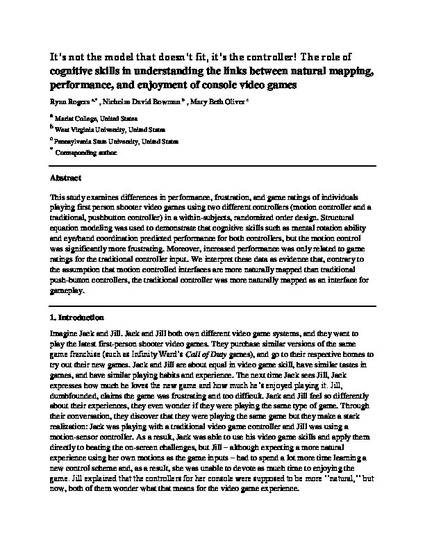
This study examines differences in performance, frustration, and game ratings of individuals playing first person shooter video games using two different controllers (motion controller and a traditional, pushbutton controller) in a within-subjects, randomized order design. Structural equation modeling was used to demonstrate that cognitive skills such as mental rotation ability and eye/hand coordination predicted performance for both controllers, but the motion control was significantly more frustrating. Moreover, increased performance was only related to game ratings for the traditional controller input. We interpret these data as evidence that, contrary to the assumption that motion controlled interfaces are more naturally mapped than traditional push-button controllers, the traditional controller was more naturally mapped as an interface for gameplay.
This is a post-print version of an article originally published in Computers in Human Behavior, 2015, Volume 49.
The version of record is available through: Elsevier .
Available at: http://works.bepress.com/ryan-rogers/1/
